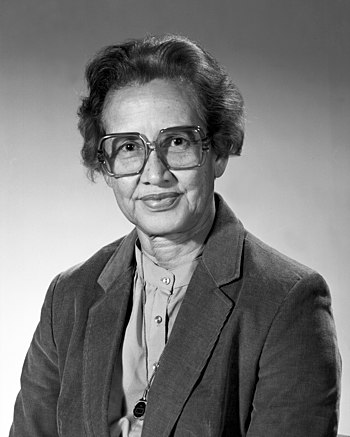From today's featured article
USS Indiana was the lead ship of her class and the first battleship in the United States Navy comparable to foreign battleships of the time. Authorized in 1890, she was launched on 28 February 1893 and commissioned on 20 November 1895. The ship pioneered the use of an intermediate battery. Indiana served in the Spanish–American War as part of the North Atlantic Squadron and took part in the blockade of Santiago de Cuba and the battle of Santiago de Cuba. After the war she became obsolete—despite several modernizations—and spent most of her time in commission as a training ship or in the reserve fleet, with her last commission during World War I as a training ship for gun crews. She was decommissioned for the third and final time in January 1919 and was shortly after renamed Coast Battleship Number 1 so that the name Indiana could be reused. She was sunk in shallow water as a target in aerial bombing tests in 1920 and her hull was sold for scrap in 1924. (Full article...)
Did you know ...
- ... that Palma Vecchio's A Blonde Woman (pictured) may be a goddess, a lady, or a courtesan?
- ... that nursing educator Helen Turner Watson was one of the first African-American women to become a commissioned officer in the United States Navy?
- ... that Lamar Johnson learned American Sign Language for his role in the fifth episode of The Last of Us?
- ... that Soviet German literary critic Richard Knorre was injured in an explosion during the siege of Leningrad?
- ... that George Balanchine choreographed Ballet Imperial to prove that Americans were capable of performing in the traditions of classical ballet?
- ... that two Norwegians, Erik Fosse and Mads Gilbert, as the only Western doctors at the al-Shifa Hospital in Gaza, found themselves as leading witnesses of the 2008–2009 Gaza War?
- ... that New York City's Lexington Hotel banned tipping when it opened?
- ... that trains can be pulled by cows?
In the news

- At least 63 migrants are killed in a shipwreck off the coast of Calabria, Italy.
- Floods and landslides (pictured) leave more than 60 people dead in the Brazilian state of São Paulo.
- At the British Academy Film Awards, All Quiet on the Western Front wins Best Film and six other awards.
- A bus crash in Gualaca, Panama, kills at least 39 people.
- Cyclone Gabrielle causes widespread damage and flooding across New Zealand.
- Nikos Christodoulides is elected President of Cyprus.
On this day
February 28: Kalevala Day / Finnish Culture Day
- 1638 – The National Covenant was formally adopted in opposition to proposed reforms to the Church of Scotland by King Charles I.
- 1897 – Ranavalona III, the last sovereign ruler of the Kingdom of Madagascar, was deposed by French military forces.
- 1928 – Indian physicist C. V. Raman and his colleagues discovered what is now known as Raman scattering, for which he later became the first Asian to win the Nobel Prize in Physics.
- 1947 – Nationalist soldiers fired on protesters in Taipei (crowd pictured), triggering widespread uprisings and the violent suppression in the Taiwanese White Terror.
- 1975 – A London Underground train failed to stop at the terminal Moorgate station, crashing and causing the deaths of 43 people.
- Cornelius Gemma (b. 1535)
- Pierre Fatou (b. 1878)
- Anna Muzychuk (b. 1990)
Today's featured picture

|
Katherine Johnson (1918–2020) was an African-American mathematician whose calculations of orbital mechanics as a NASA employee were critical to the success of U.S. crewed spaceflights. During her 33-year career at NASA and its predecessor, the National Advisory Committee for Aeronautics, she earned a reputation for mastering complex manual calculations and helped the space agency pioneer the use of computers to perform tasks. She worked with the Apollo program, calculating rendezvous paths for the lunar lander and command module on its flights to the Moon. Johnson's calculations were essential to the beginning of the Space Shuttle program and she also worked on plans for a mission to Mars. In 2015, President Barack Obama awarded her the Presidential Medal of Freedom, as a pioneering example of African-American women in STEM. She was portrayed by Taraji P. Henson as a lead character in the 2016 film Hidden Figures. This NASA photographic portrait of Johnson was taken in 1983. Photograph credit: NASA
Recently featured:
|
Other areas of Wikipedia
- Community portal – The central hub for editors, with resources, links, tasks, and announcements.
- Village pump – Forum for discussions about Wikipedia itself, including policies and technical issues.
- Site news – Sources of news about Wikipedia and the broader Wikimedia movement.
- Teahouse – Ask basic questions about using or editing Wikipedia.
- Help desk – Ask questions about using or editing Wikipedia.
- Reference desk – Ask research questions about encyclopedic topics.
- Content portals – A unique way to navigate the encyclopedia.
Wikipedia's sister projects
Wikipedia is written by volunteer editors and hosted by the Wikimedia Foundation, a non-profit organization that also hosts a range of other volunteer projects:
-
Commons
Free media repository -
MediaWiki
Wiki software development -
Meta-Wiki
Wikimedia project coordination -
Wikibooks
Free textbooks and manuals -
Wikidata
Free knowledge base -
Wikinews
Free-content news -
Wikiquote
Collection of quotations -
Wikisource
Free-content library -
Wikispecies
Directory of species -
Wikiversity
Free learning tools -
Wikivoyage
Free travel guide -
Wiktionary
Dictionary and thesaurus
Wikipedia languages
This Wikipedia is written in English. Many other Wikipedias are available; some of the largest are listed below.
-
1,000,000+ articles
-
250,000+ articles
-
50,000+ articles


